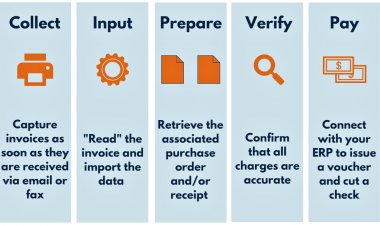4 Steps to Strengthen Your Small Businesses
Small companies all over the world are searching for stability right now, and luckily, there is a range of attempted strategies for achieving it.

The COVID-19 pandemic has totally disrupted our daily business practices. In several states, stay-in-place orders have forced stores to close their doors. After all, it is a turbulent time, especially for small and medium-sized businesses (SMBs), which lack the capital reserves of larger companies. Despite the current state of confusion, there are always things you can do to keep your company afloat.
1. Keep the customers informed.
With so much confusion, the customers will be concerned about the improvements you are introducing. To allow workers time to sanitise your facility, you may need to close your physical store or reduce hours. It is likely that you are experiencing difficulties in completing online orders. The majority of retailers have now added COVID-19 updates at the top of their home pages to highlight changes. Others are spreading the word through email lists and social media accounts. Customers will remember your brand if you communicate with them in a consistent way.
2. Consider creating new goods to replace programs that are no longer available.
If you are no longer able to offer your conventional services to your clients, creating “replacement” goods can be vital to sustaining a revenue stream. Consider your options creatively. When you're unable to sell your traditional goods or services, you could deliver digital products such as online coaching, courses and tutorials, video series, and e-books to stay in touch with customers and drive sales. Such ideas may not only keep you going, but they may also provide revenue once the company resumes normalcy.
3. Move as much of your attention as possible online.
Even if you already sell goods and services online, now is the time to consider how you can reduce in-person interactions to limit the spread even further. Many businesses have already started to use Zoom and other video conferencing methods to hold previously in-person meetings remotely. Small retailers that rely on foot traffic to sell their goods must explore digital alternatives. Offering local delivery or curbside pickup would continue making sales when revenue would be lost. Such improvements may be difficult to implement logistically, but they will keep consumers and employees secure.
4. Take note of how you handle your expenses.
With many SMBs' sales decreasing, managing cash flow has never been more critical. While the stabilisation program's microloans will definitely help, business owners should pay closer attention to stock and program management, as well as re-evaluating their existing funding options and auditing variable cost per unit. One form of collecting emergency funds is to sell properties and then lease them back. If you are lowering variable costs or getting a loan, it is essential to note both the initial and long effects of your actions on your assets.
''Businesses that are diligent in adapting to this "new standard" will be better prepared to survive the storm and will be in a stronger place after the pandemic has passed''.

 Mr.Biller Team
Mr.Biller Team 




























